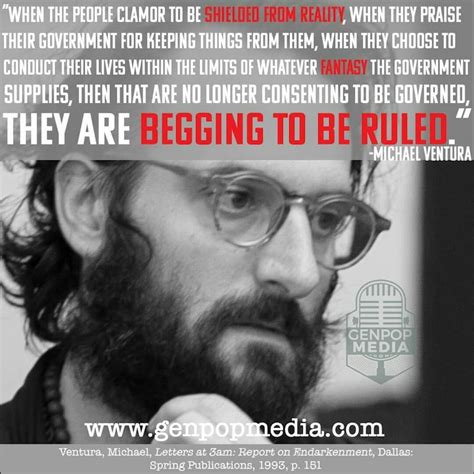A Quote by Ben Domenech
Jindal's record in Louisiana is controversial, in part because, in a state which has historically favored patronage culture and a bureaucracy that offered uninterrupted employment for those who backed the right horse, he aimed to destroy the old spoils system.
Related Quotes
There's an ancient bond that still exists today between horses and humans, it is even there with people that have never ridden a horse or been around horses. The horse is what settled the entire west. If it weren’t for the horse they’d probably be only a couple hundred miles from where they started. A lot of people don’t realize how much they owe the horse because it’s not so much a part of our culture right now as it used to be.
There can be no freedom of the individual, no democracy, without the capital system, the profit system, the private enterprise system. These are, in the end, inseparable. Those who would destroy freedom have only first to destroy the hope of gain, the profit of enterprise and risk-taking, the hope of accumulating capital, the hope to save something for one's old age and for one's children. For a community of men without property, and without the hope of getting it by honest effort, is a community of slaves of a despotic State.
The State which would provide everything, absorbing everything into itself, would ultimately become a mere bureaucracy incapable of guaranteeing the very thing which the suffering person—every person—needs: namely, loving personal concern. We do not need a State which regulates and controls everything, but a State which, in accordance with the principle of subsidiarity, generously acknowledges and supports initiatives arising from the different social forces and combines spontaneity with closeness to those in need. The Church is one of those living forces.
In education, it is said that the state must impose schooling on all children, else the parents and communities will neglect it. Only the state can make sure that no child is left behind. The only question is the means: will we use the union and bureaucracies favored by the left, or the market incentives and vouchers favored by the right. I don't want to get into a debate about which means is better, but only to draw attention to the reality that these are both forms of planning that compromise the freedom of families to manage their own affairs.
To reverse the effects of civilization would destroy the dreams of a lot of people. There's no way around it. We can talk all we want about sustainability, but there's a sense in which it doesn't matter that these people's dreams are based on, embedded in, intertwined with, and formed by an inherently destructive economic and social system. Their dreams are still their dreams. What right do I -- or does anyone else -- have to destroy them. At the same time, what right do they have to destroy the world?
We have a culture that is indirect in the extreme, where by the time you're five years old, you've watched tons of television, and have been subjected to what I call "the age of interruption," where everything is interrupted every minute. We have constant input from TV, computers, fax machines, telephones, etc. It's very hard for a modern American to have two hours of uninterrupted time. I know how it is because I insist on several hours of uninterrupted time each day, and I know how ruthless I have to be to get it.
Puffy's contribution to hip-hop culture was the remix. He offered us the music that his mom played in front of him, with newer drums and younger artists. That worked, and will consistently be there. The remix comes right after the original record, that's something Puffy did to influence the culture.
In a culture fueled by burnout, a culture that has run itself down, our national resilience becomes compromised. And when our collective immune system is weakened, we become more susceptible to viruses that are part of every culture because they're part of human nature - fear-mongering, scapegoating, conspiracy theories, and demagoguery.






































